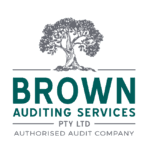The Process of a Financial Audit in New South Wales
A financial audit involves assessing the accuracy of an organisation’s financial information and how well their accounting processes comply with Australian Accounting Standards. Brown Auditing Services in New South Wales specialises in not for profits and charity organisations, and we tailor our audit reporting approach and advice to each client. The appropriate approach varies depending on the unique circumstances and business needs. While audit processes can vary, there are some common phases of an audit that typically apply, which we explore below.
Planning and Designing the Audit Procedure
During the planning phase, a financial auditor will plan audit procedures depending on the type and size of your organisation. We do so whilst learning about your organisation’s policies, accounting systems and internal control procedures. Auditors will typically request key documentation as a basis on which to begin planning the audit strategy, procedure, criteria and milestones.
Interim Phase
The interim phase involves auditors assessing and scrutinising financial procedures and performance measures included in any corporate plans, budget and estimates statements and the internal control framework. The main goal is to determine the likelihood of errors and difficulty in achieving an accurate audit report.
Testing Controls and Transactions
This is where the execution phase of the financial audit begins. We start by checking and verifying financial reporting and performing tests to control the effectiveness of existing controls and processes. Auditors will verify transactions entered in the books of different accounts to determine their accuracy and spot any irregularities or misstatements.
Testing Financial Procedures
After checking the data on record and verifying the internal controls in place, the next step is to check these processes to ensure they are working and spot any potential weaknesses or areas prone to error. During this stage, the auditor may request more information about transactions while continuing to inspect data and checking firsthand how internal controls are performed.
Audit Reporting Phase
After gathering sufficient audit evidence, the financial auditor will then provide their opinion regarding the quality of financial reporting and the quality of financial statements and internal control structures of the organisation:
- Unqualified report, indicating no issues
- Qualified report, minor errors and noncompliance issues
- Disclaimer report, indicating an inability to make an accurate report due to insufficient information
- Adverse report, indicating pervasive issues of noncompliance and serious misstatements or irregularities in financial reporting
The audit report offers an unbiased assessment of your internal accounting processes. These findings can be used to verify the financial stability and compliance of your company in the eyes of investors, lenders, regulatory bodies and other interested parties. Reports other than an unqualified report can be used to adjust processes as required, helping to avoid errors and produce more accurate and insightful data going forward.
Financial Auditing for NFPs in New South Wales
At Brown Auditing Services, our expert team provides financial auditing services to a range of clients, from private companies to for-purpose and not-for-profits across Maitland and the Central Coast of NSW. To discuss your audit compliance requirements, call 0428 661 200 or contact us online and book a no obligation consultation.
